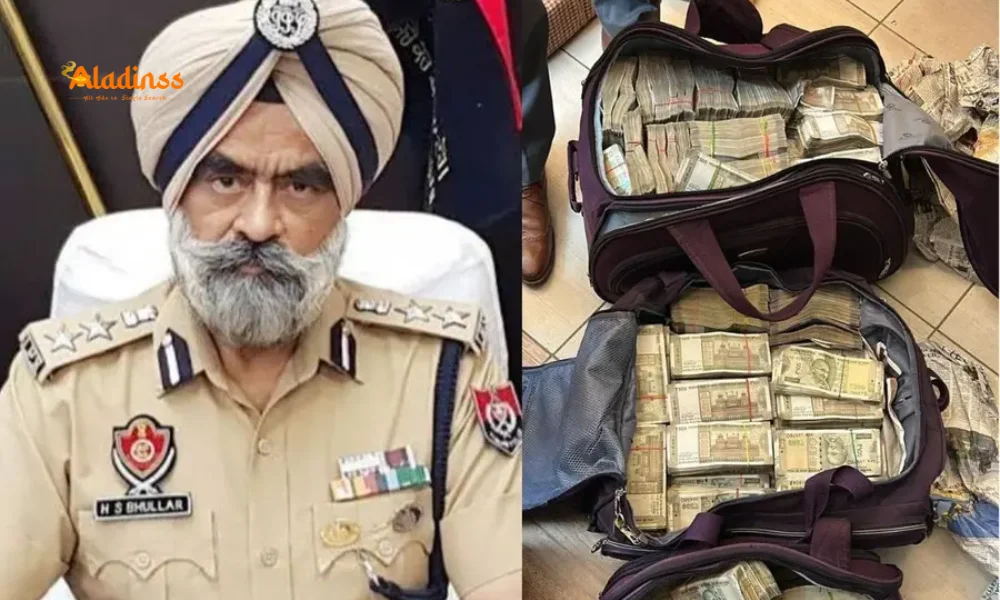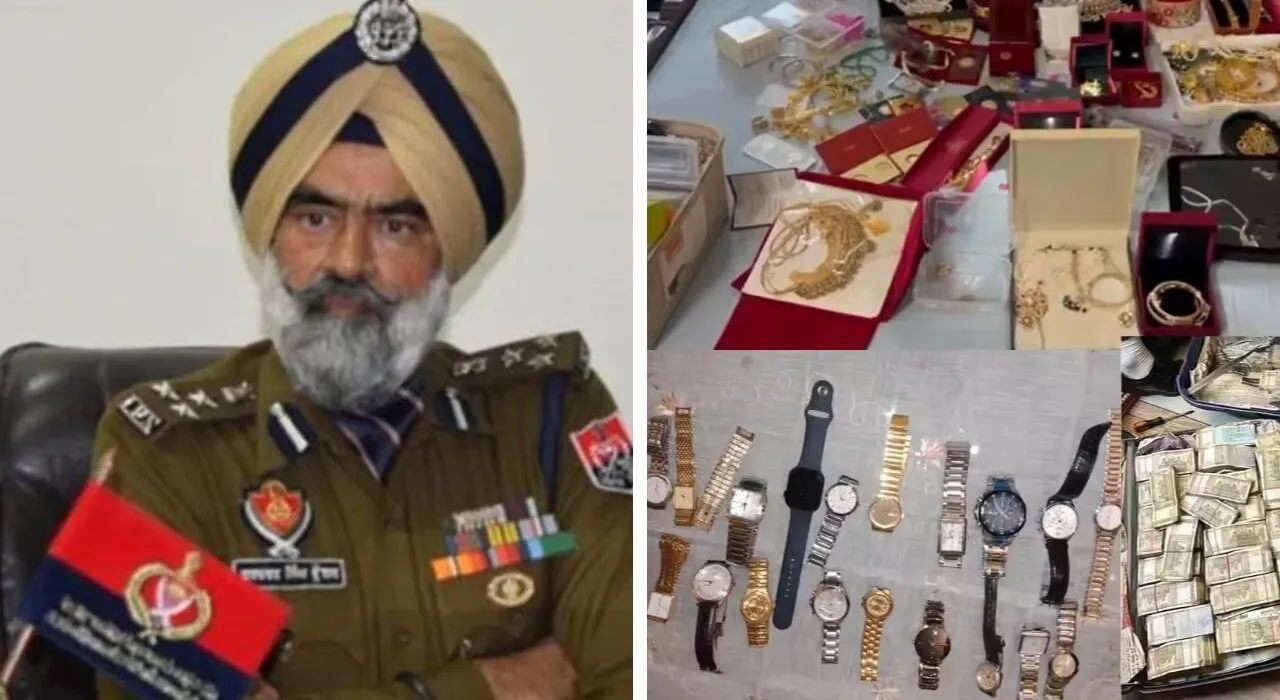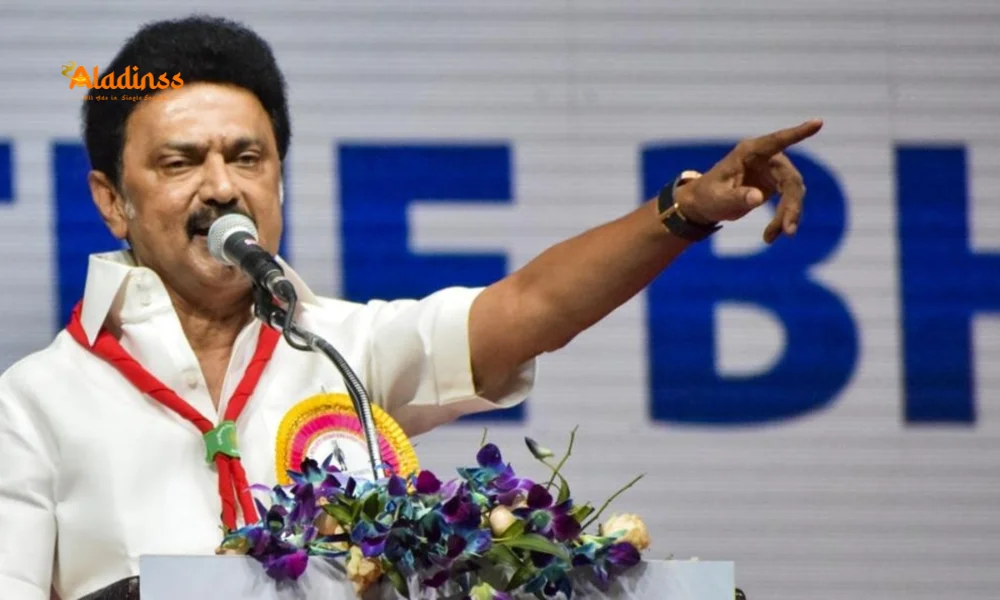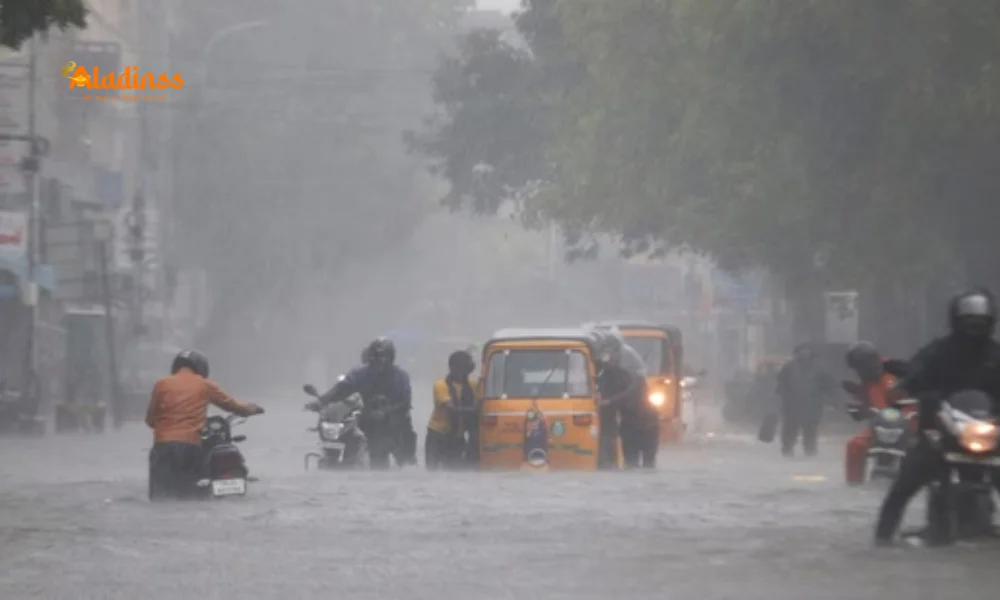Shocking Corruption Case: Punjab DIG Linked to Rs 5 Crore Fraud

Punjab DIG Harcharan Singh Bhullar Arrested in Bribery Scandal
The Central Bureau of Investigation (CBI) arrested Harcharan Singh Bhullar, a senior Punjab Police officer and Deputy Inspector General (DIG) of Ropar Range, on Thursday in a high-profile corruption case. Bhullar, a 2007-batch IPS officer, was caught accepting a Rs 8 lakh bribe at his Mohali office, following a sting operation triggered by a complaint from a scrap dealer in Mandi Gobindgarh. The dealer alleged that Bhullar demanded recurring "sewa-paani" payments to settle a 2023 FIR and protect his business from police action. The arrest has sent shockwaves through Punjab’s law enforcement community.
The CBI’s raid on Bhullar’s Chandigarh residence uncovered a staggering Rs 5 crore in cash, luxury vehicles, and other assets, raising questions about the officer’s wealth and its sources. Alongside Bhullar, a middleman named Kirshanu was also arrested, with Rs 21 lakh recovered from him. The case has exposed deep-rooted corruption within Punjab’s police force, spotlighting Bhullar’s alleged extortion scheme. The CBI is now investigating the origins of Bhullar’s assets, suspecting a broader network of illicit activities.

Who is Harcharan Singh Bhullar?
Harcharan Singh Bhullar, a 2007-batch Indian Police Service (IPS) officer, has been a prominent figure in Punjab’s law enforcement. Appointed DIG of Ropar Range on November 27, 2024, Bhullar oversaw policing in Mohali, Rupnagar, and Fatehgarh Sahib districts. Prior to this, he served as DIG of Patiala Range, where he maintained a relatively low profile while playing a key role in the Bhagwant Mann government’s anti-drug campaign. Bhullar led the Special Investigation Team (SIT) that interrogated Shiromani Akali Dal leader Bikram Singh Majithia on drug smuggling charges, a high-profile case that drew significant attention.
Bhullar hails from a family with deep ties to Punjab’s police and political spheres. His father, Mahal Singh Bhullar, is a former Punjab Director General of Police (DGP), and his younger brother, Kuldeep Singh Bhullar, is a former Congress MLA. Despite his family’s prominence, Bhullar’s career has now been overshadowed by allegations of corruption, with the CBI uncovering evidence of his lavish lifestyle and unexplained wealth during raids on his Sector 40 residence in Chandigarh.
Details of the CBI Sting Operation
The CBI’s investigation into Bhullar began after Akash Batta, a scrap dealer from Mandi Gobindgarh, lodged a complaint alleging extortion. Batta claimed that Bhullar demanded Rs 8 lakh as part of a recurring “sewa-paani” payment to resolve a 2023 FIR filed against him in Sirhind. The officer allegedly threatened to implicate Batta in additional criminal cases if he failed to comply. Acting on the complaint, the CBI monitored Bhullar for 10 days before setting up a trap that led to his arrest while accepting the bribe.
The sting operation also implicated Kirshanu, a middleman who facilitated Bhullar’s extortion scheme. The CBI recovered Rs 21 lakh from Kirshanu, further corroborating allegations of a systematic extortion racket. Both Bhullar and Kirshanu were taken to the CBI’s Chandigarh office for questioning and are scheduled to appear in court on Friday. The agency has described the operation as part of a broader effort to curb corruption within Punjab’s police force, with ongoing investigations to trace the source of Bhullar’s wealth.
Assets Seized from Bhullar’s Residence
The CBI’s searches at Bhullar’s Chandigarh home revealed a trove of assets that have raised eyebrows. Among the items recovered were:
- Rs 5 crore in cash
- 1.5 kg of gold and silver jewellery
- Documents related to immovable properties
- Keys to luxury vehicles, including an Audi and a Mercedes
- 22 luxury watches
- Locker keys
- 40 litres of imported liquor
- Firearms, including a double-barrel gun, a pistol, a revolver, and an airgun, along with ammunition
The scale of the recovered assets has fueled speculation about Bhullar’s financial dealings, with the CBI now focusing on tracing their origins. The presence of luxury vehicles, high-value jewellery, and substantial cash reserves suggests that Bhullar may have amassed wealth far beyond his official income as a police officer. The investigation is expected to scrutinize property documents and bank records to uncover potential links to illicit activities.
The ‘Sewa-Paani’ Extortion Scheme
The term “sewa-paani,” commonly used in Punjab to refer to bribes paid for favors, has taken center stage in this case. According to the CBI’s FIR, Bhullar allegedly demanded recurring monthly payments from Akash Batta to ensure his scrap business faced no police interference. The complainant claimed that Bhullar’s threats included false implication in criminal cases, a tactic reportedly used to intimidate business owners into compliance. This extortion scheme highlights systemic issues within Punjab’s law enforcement, where power is allegedly misused for personal gain.
The CBI’s investigation has revealed that Bhullar’s operation was not an isolated incident but part of a broader pattern of corruption. The agency’s monitoring over the past 10 days uncovered evidence of a monthly extortion racket, with Kirshanu acting as a key intermediary. The recovery of Rs 21 lakh from the middleman suggests that the scheme targeted multiple individuals, potentially generating significant illicit income for Bhullar and his associates.
Implications for Punjab Police
Bhullar’s arrest has cast a shadow over the Punjab Police, raising questions about accountability and transparency within the force. As a senior IPS officer and the son of a former DGP, Bhullar’s fall from grace is particularly significant, given his role in high-profile cases like the Bikram Singh Majithia investigation. The case has sparked public outrage, with many calling for stricter oversight of law enforcement officials to prevent abuse of power.
The Punjab government, led by Chief Minister Bhagwant Mann, has faced scrutiny over its anti-corruption measures, especially in light of Bhullar’s involvement in the anti-drug campaign. The discovery of such extensive assets at Bhullar’s residence has fueled demands for a thorough investigation into other senior officials, as public trust in the police force wanes. The CBI has vowed to continue its probe, with a focus on dismantling any networks that enabled Bhullar’s alleged corruption.
What’s Next for Bhullar?
Following his arrest, Bhullar and Kirshanu are set to face legal proceedings, with the CBI preparing to present them in court. The agency’s ongoing investigation will likely delve deeper into Bhullar’s financial dealings, examining property records, bank accounts, and potential connections to other individuals involved in the extortion scheme. The recovery of firearms and luxury items suggests a lifestyle far removed from that of a public servant, prompting speculation about additional charges.
The case has broader implications for Punjab’s political and law enforcement landscape. With Bhullar’s family ties to both the police and politics, the scandal could have ripple effects, potentially implicating other figures. The CBI’s commitment to tracing the source of Bhullar’s wealth underscores the agency’s determination to root out corruption, but the challenge lies in addressing systemic issues that allow such schemes to flourish. As the investigation unfolds, Bhullar’s arrest serves as a stark reminder of the need for accountability in public service.
The Harcharan Singh Bhullar corruption case has exposed vulnerabilities within Punjab’s police force, raising questions about the integrity of those entrusted with upholding the law. As the CBI continues its probe, the public awaits answers about the extent of Bhullar’s illicit activities and the measures needed to prevent similar scandals in the future. The case serves as a wake-up call for authorities to strengthen anti-corruption mechanisms and restore trust in the system.
Comment / Reply From
No comments yet. Be the first to comment!











